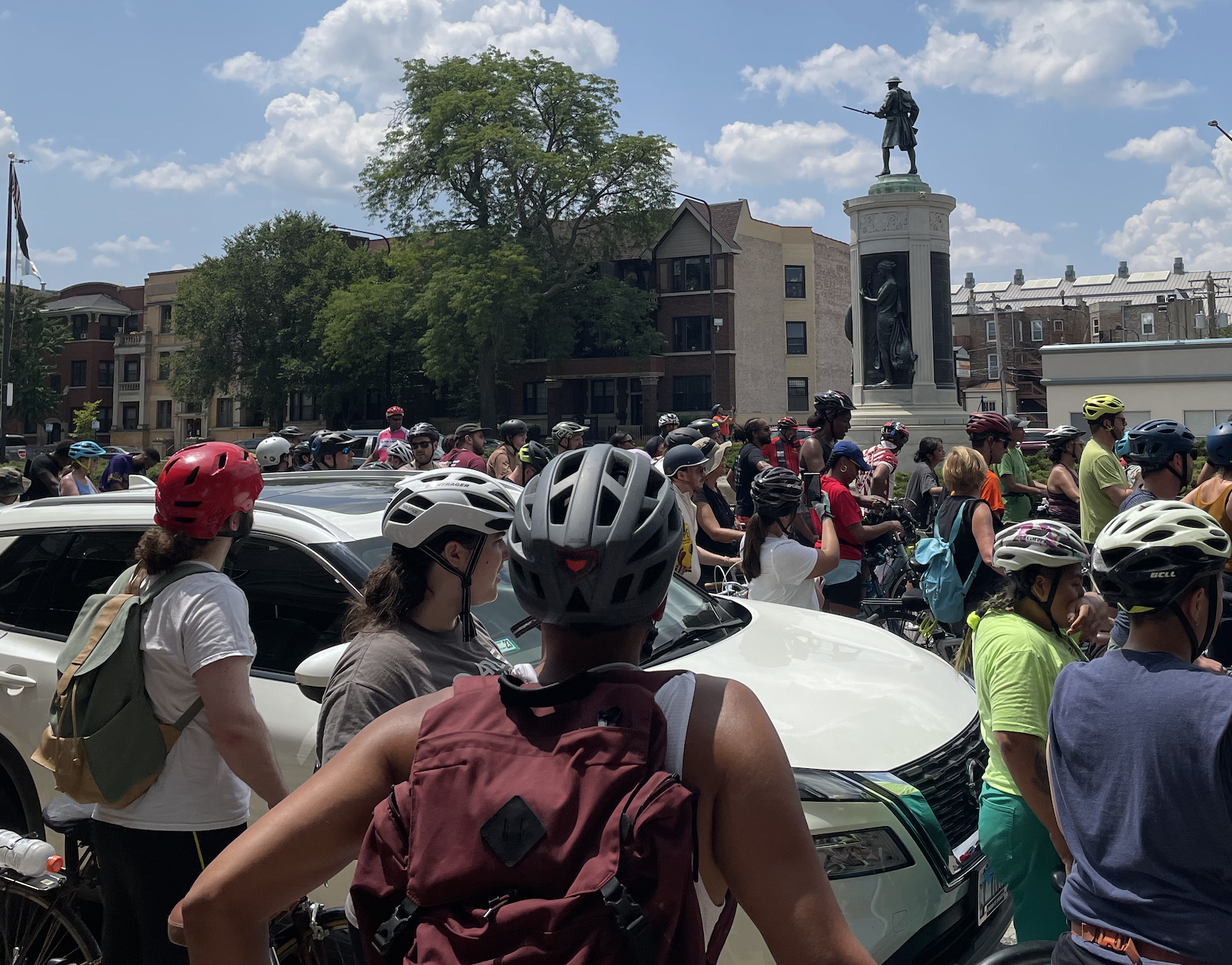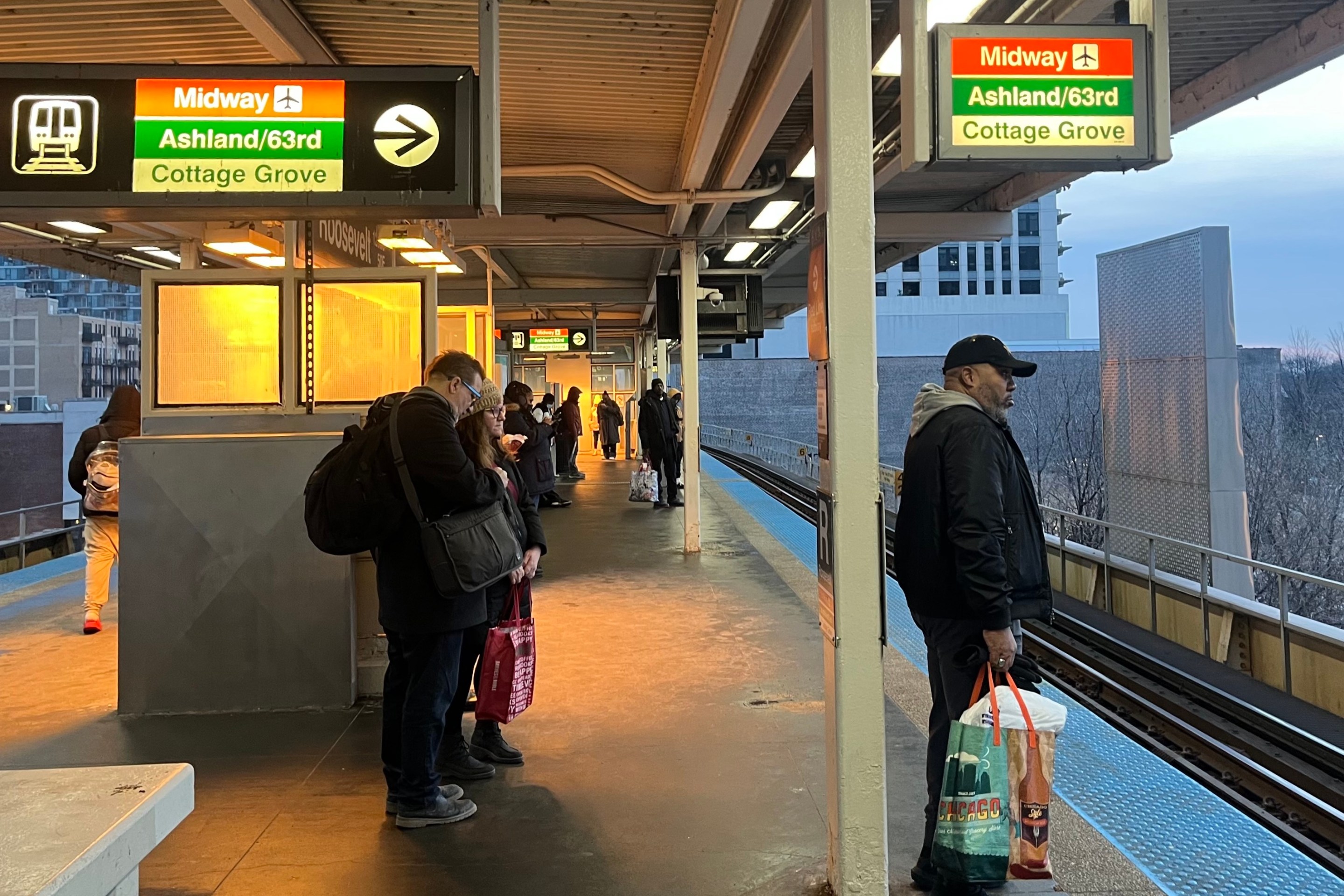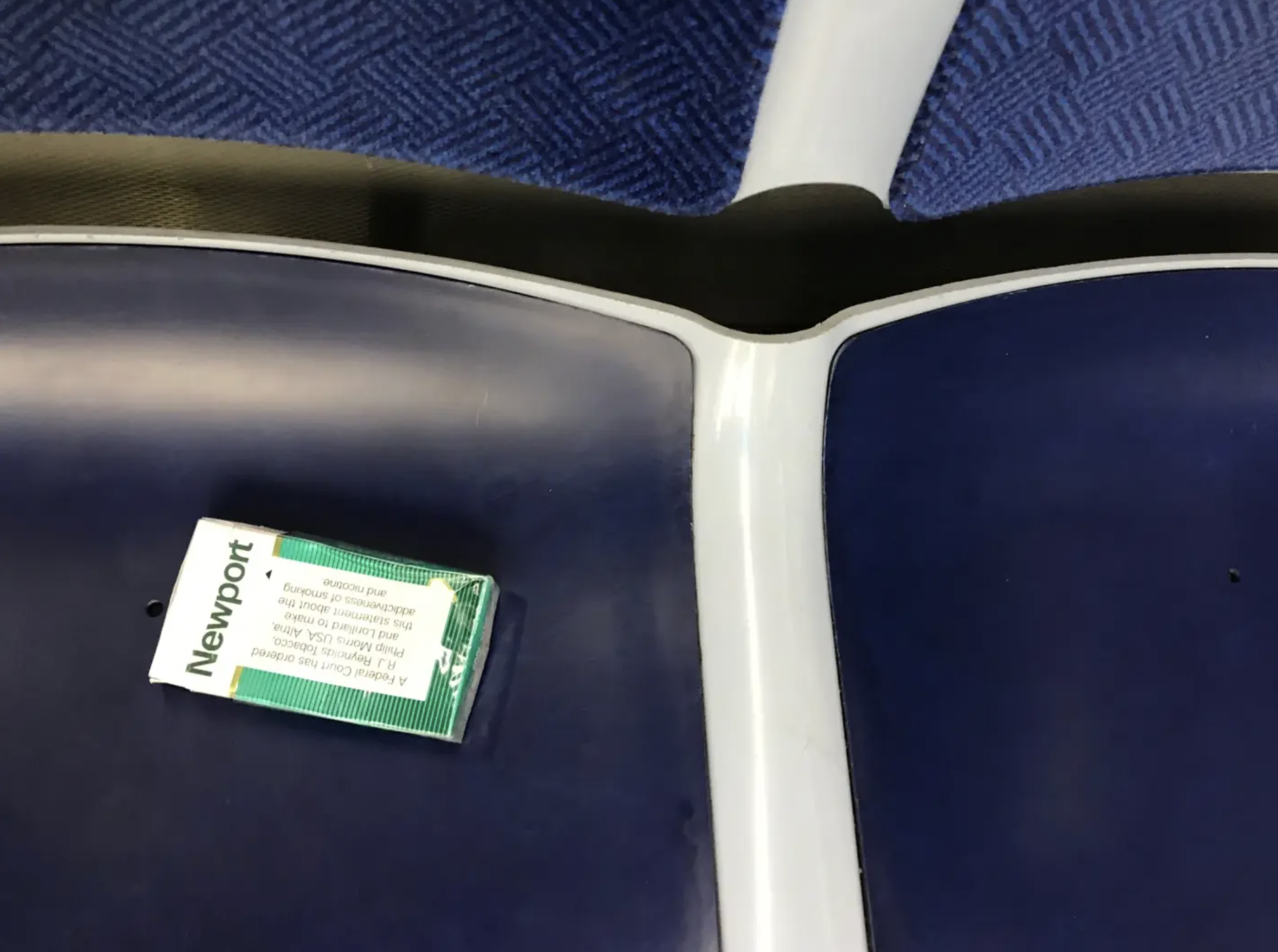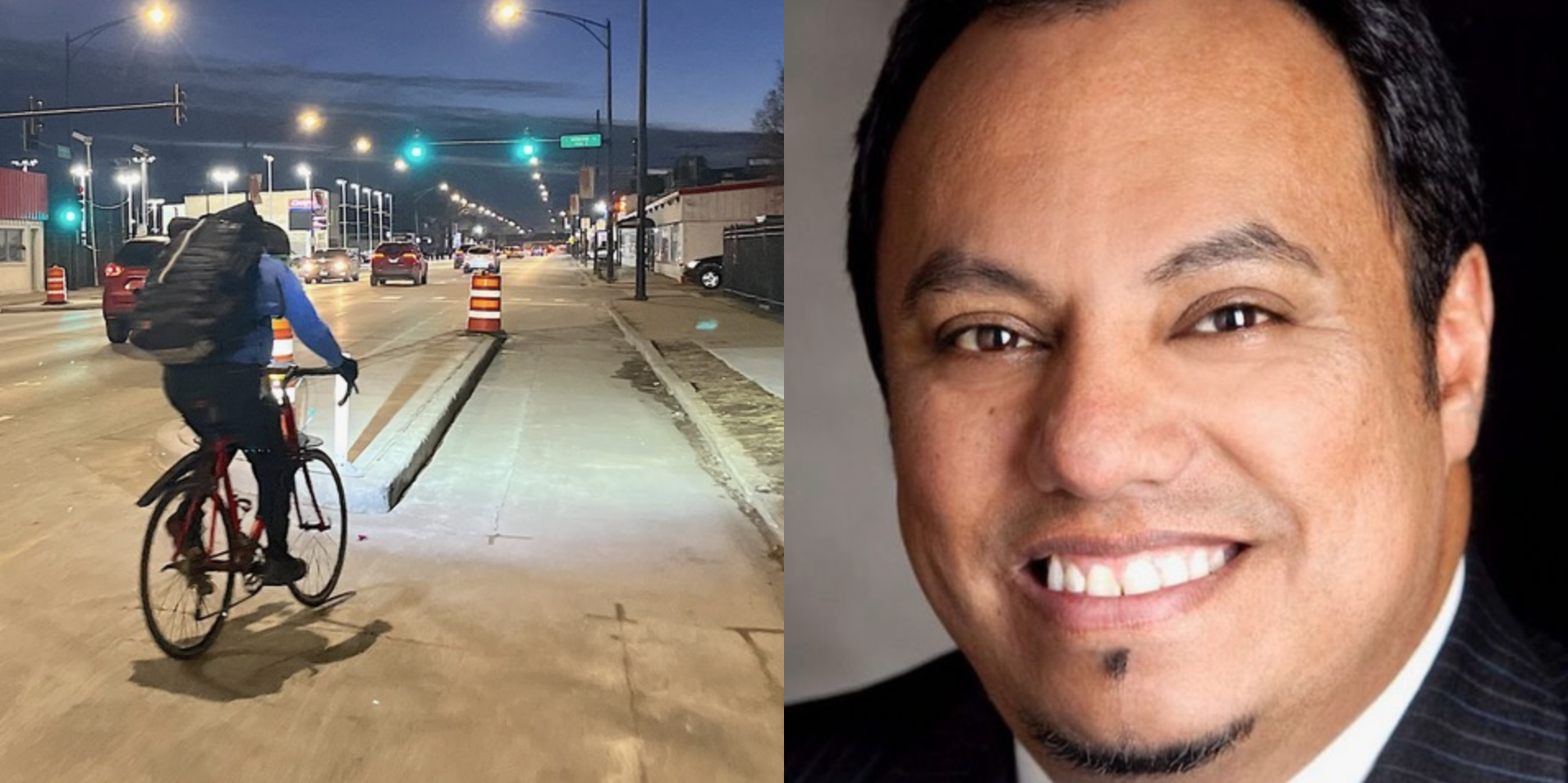The Chicago Race Riot of 1919 Commemoration Project (CRR19) held its 5th Annual Historic Bike Tour last Saturday, July 22, 2023, drawing about 350 participants. As detailed previously in Streetsblog, the historic bike tour was started on the 100th anniversary of the riot by Dr. Peter Cole, a history professor at Western Illinois University, and Dr. Franklin Cosey-Gay, director of the violence recovery program at the University of Chicago Medicine's urban health institute. They’re cycling enthusiasts as well.
In the early 20th century, Chicago was viewed as a promised land for African-Americans fleeing oppression in the South during the Great Migration. But while our city did offer some opportunities, racism continued to be a problem here.
Soon after World War 1, racial tensions came to a boil with the Chicago Race Riot of 1919. The conflict started when African-American teenager Eugene Williams drowned at 29th Street Beach after he floated into a section of the shoreline that was unofficially reserved for whites, and a white man threw stones at him. The resulting multi-day violence was the worst such event in Chicago history, with 38 people killed. But today many local residents haven't heard about the riot.
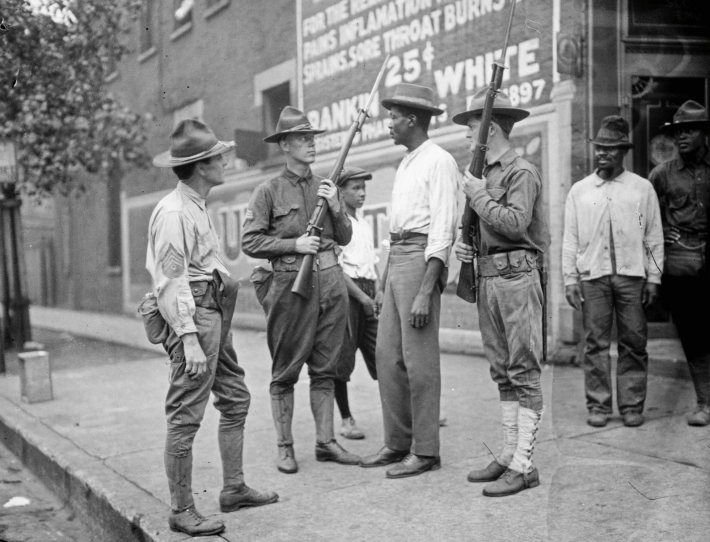
Coley and Cosey-Gay thought a bike tour would be an ideal to share this history with other Chicagoans. "There's no better way to explore the city than by bicycle, because it's fast enough to cover some ground, but slow enough that you're still part of the experience as opposed to being removed or divorced when you're in your own car," Cole said. "It's simply a much better way to explore neighborhoods in a city. The bike is the perfect tool."
Participants went on a ride that took them through Bronzeville, Bridgeport, and Canaryville to learn about the significance various locations had in the riot. One of these historic places was the starting and ending point under the Green Line tracks at 35th and State streets near the Illinois Institute of Technology. During the riots, the Chicago Defender named that intersection the "Vortex of Violence."
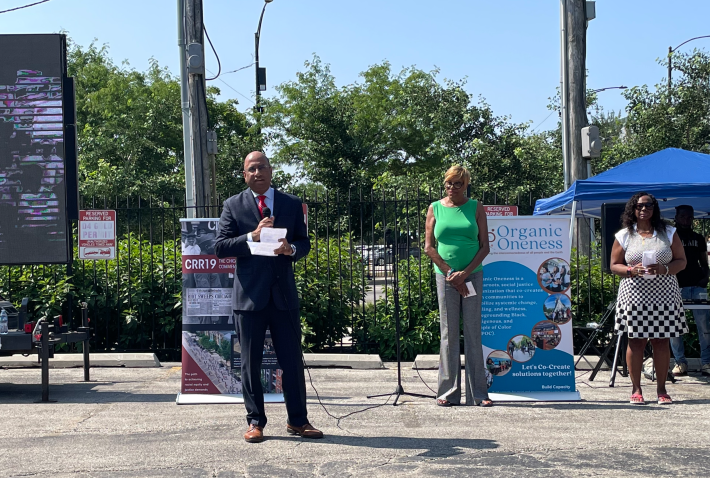
"I'm so honored to welcome you all today to our campus in the historic Bronzeville neighborhood that is so rich in historical significance and cultural legacy," said IIT president Raj Echambadi before the ride took off. "Today we are gathered to remember the tragic events that took place in 1919 – part of our shared history of the city of Chicago. We are here today not only to remember and witness the lives so tragically taken but also to ensure that we never, ever, ever forget. And indeed, we commit to eternally combat the system of prejudice and discrimination that fueled that horrific event."
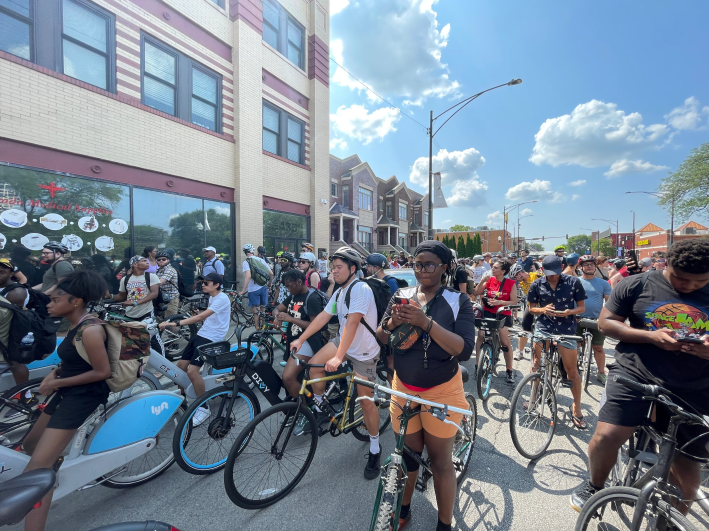
One such way that CRR19 is helping people remember a tragic event from many years ago is with public art. Coles said he's particularly inspired by Stolpersteine, or "stumbling stones." These are 10-centimeter concrete cubes with a brass plate inscribed with the name and life dates of a victim of persecution or extermination, originally used in Germany to remember Holocaust victims. "Germany has done a much better job of remembering its histories of atrocities," Cole said.
Working with Firebird Community Arts and the city's public art department, CRR19 will create and install 38 durable, artistic glass markers--one for each of the people killed in 1919. One difference between the German and Chicago Stolpersteine is that in Germany the markers are installed in the street where people last lived or worked, while the Chicago memorials are placed where a person died.
"So, in our project, you will come across a marker to someone who was killed, and that might educate you a little bit about the history of your city and also might sort of inspire or provoke you to try to learn more," Cole said. "These markers by themselves can't do too much because there's only so much a silent marker can do. But we hope that they inspire people who see them to then seek out more knowledge."
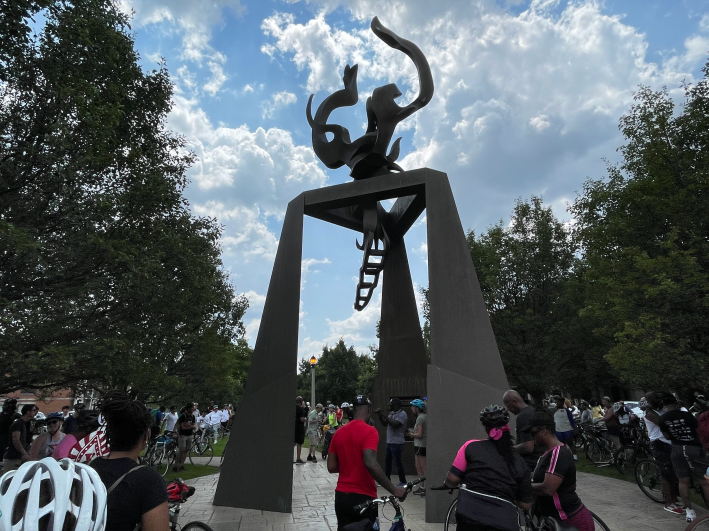
Other speakers included Dr. Myiti Rice, the great-grandniece of Chicago Defender newspaper founder Robert Sengstacke Abbott. Shermann Dilla Thomas, who has been nicknamed the Chicago urban historian who went viral on TikTok, presented. Professor Lance Williams, the author of the book King Daley and Boss Daley spoke. Dr. Asif Wilson made remarks at Roberts Temple Church of God, 4021 S. State St., where Emmett Till's funeral was held. Dan Duster, the great-grandson of journalist and activist Ida B. Wells was also there.
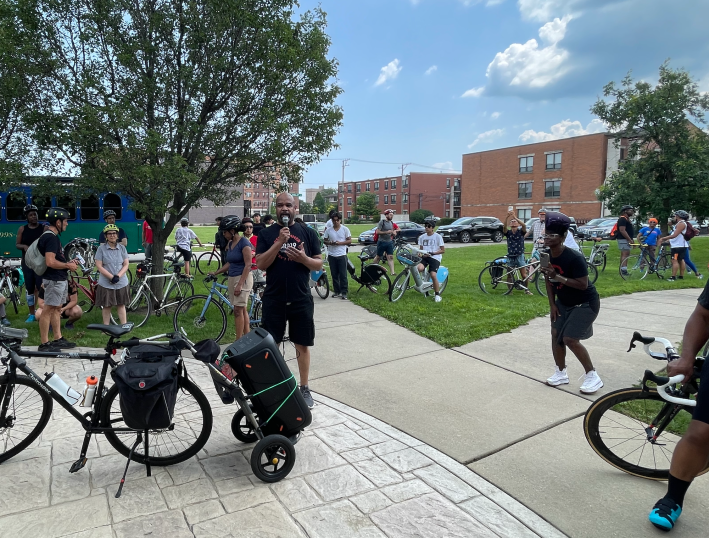
"What's my call to action today is that we're still fighting some of the same things," said Duster at the Light of Truth Ida B. Wells National Monument, 3729 S. Langley Ave. "You could not tell me that in 2023 that we're still talking about voter's rights, women's reproductive rights, diversity, those rights. So, thank you for being here... Go out, please tell others, get others involved.The struggle continues."

Did you appreciate this post? Please consider making a tax-deductible donation.
